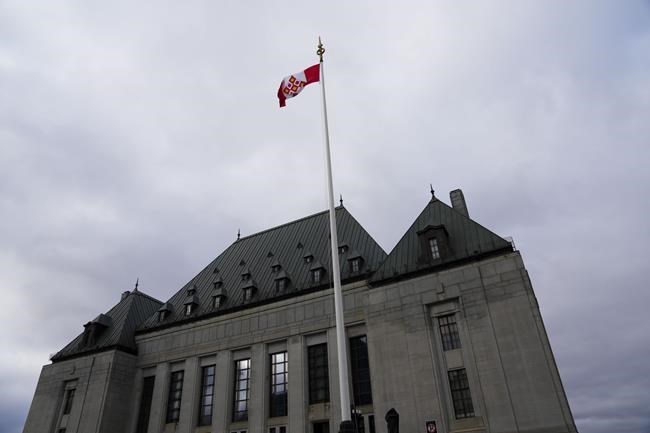OTTAWA — The Supreme Court of Canada will not hear the appeal of an Alberta woman who was unwilling to be vaccinated against COVID-19 in order to get a life-saving organ transplant.
Annette Lewis was diagnosed with a terminal disease in 2018 and was told she would not survive unless she received an organ transplant.
She was placed on a transplant wait list in 2020, but was informed a year later she would need to get the COVID-19 vaccine to receive the organ.
Lewis said taking the vaccine would offend her conscience and argued the requirement violated her Charter rights to life, conscience, liberty and security of the person.
"I ought to have the choice about what goes into my body, and a life-saving treatment cannot be denied to me because I chose not to take an experimental treatment for a condition — COVID-19 — which I do not have and which I may never have," Lewis said in an affidavit previously submitted to court.
The case was dismissed by an Alberta court, which said the Charter has no application to clinical treatment decisions, in particular for doctors establishing preconditions for organ transplants.
Justice Paul Belzil ruled that standard of care must be the same for all potential recipients or it could result in "medical chaos."
The Alberta Court of Appeal upheld the decision, prompting Lewis's appeal to the Supreme Court of Canada.
"Ms. Lewis is deeply disappointed that the Supreme Court of Canada decided not to hear her case," Allison Pejovic, Lewis's lawyer, said in a news release from the Justice Centre for Constitutional Freedoms.
"She had hoped that justice would prevail in the courts for herself and other unvaccinated transplant candidates across Canada."
Pejovic said Lewis's constitutional challenge ends with the Supreme Court of Canada's dismissal but she will continue trying to get the life-saving surgery.
Lewis recently filed a separate legal action against Alberta Health Services, an Alberta hospital and the transplant doctors.
There is a publication ban on the doctors' identities, the organ involved and the location of the transplant program.
Lewis is arguing negligence in the decision to remove her from the high-priority transplant list, saying it amounts to medical malpractice.
The Justice Centre for Constitutional Freedoms said Lewis will ask the court at an upcoming injunction hearing to grant an immediate reinstatement to the transplant list pending the result of the court action.
This report by The Canadian Press was first published June 8, 2023.
— By Kelly Geraldine Malone in Saskatoon
The Canadian Press



